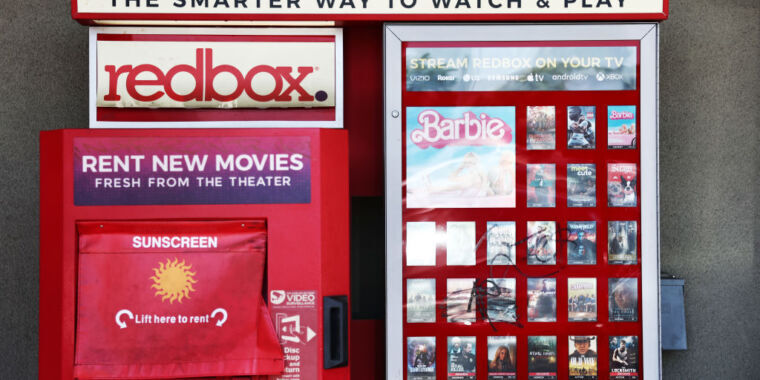- cross-posted to:
- [email protected]
- [email protected]
- cross-posted to:
- [email protected]
- [email protected]
It’s sensible for businesses to shift from physical media sales. Per CNBC’s calculations, DVD sales fell over 86 percent between 2008 and 2019. Research from the Motion Picture Association in 2021 found that physical media represented 8 percent of the home/mobile entertainment market in the US, falling behind digital (80 percent) and theatrical (12 percent).
But as physical media gets less lucrative and the shuttering of businesses makes optical discs harder to find, the streaming services that largely replaced them are getting aggravating and unreliable. And with the streaming industry becoming more competitive and profit-hungry than ever, you never know if the movie/show that most attracted you to a streaming service will still be available when you finally get a chance to sit down and watch. Even paid-for online libraries that were marketed as available “forever” have been ripped away from customers.
When someone buys or rents a DVD, they know exactly what content they’re paying for and for how long they’ll have it (assuming they take care of the physical media). They can also watch the content if the Internet goes out and be certain that they’re getting uncompressed 4K resolution. DVD viewers are also less likely to be bombarded with ads whenever they pause and can get around an ad-riddled smart TV home screen (nothing’s perfect; some DVDs have unskippable commercials).



Offline copy protection, like the copy protection in DVDs and Bluray, can’t be revoked, they’re literally designed to be static. It’s really not an issue since, given time, it’ll be cracked (and both are, I literally just finished ripping my collection). I’m fine with that form of copy protection, I’m not fine with online-only DRM because that’s totally revokable.
Disagree. In order to keep those keys secure they can’t publish them, so they’ll have to license some sort of decryption chip. That just pushes the price up as some manufacturer ends up taking a cut from every player sale.
Also means you can’t do what you want with it. You probably can’t play it on an open source device. Etc etc.
Sure, I’d need specific hardware to access the media, but after I rip it, I can access it anywhere. The benefit to me of something like a Bluray isn’t the disk itself, but being able to legally buy media and rip it to a digital format at home. That’s a legally gray area since breaking copy protection measures is technically a copyright violation, but there’s also legal protection for backing up media for personal use, so it’s a bit of a gray area.
Given that there are no other legal or mostly legal alternatives, I’m satisfied with that as an option. Media companies rarely, if ever, go after people who rip media for personal use (probably because it’s not worth their time and it’s a legal gray area), so I’m okay with that status quo. If there were a legal option to get DRM-free media for offline use, I’d totally go for that. I tried that with streaming services, but the apps I used (Netflix and Disney+) failed when I actually needed them (my downloaded files “expired” on a trip when I didn’t have internet access), so that’s not going to work for me.
If this legally gray area goes away and I can’t easily rip media into a DRM-free format for personal use, I’ll go back to the alternatives I used when I couldn’t afford physical media and Netfilx wasn’t yet a thing.
Yeah I’m not paying for something and it still be illegal. I’d rather stick to piracy. I get your point and if it works for you that’s cool. But it’s not for me.
A good usenet setup with the Arr stack can automatically download basically anything you want and costs tens of dollars per year to run with very little, if any risk. (have there been any prosecutions for people downloading from usenet?)
With a little bit of work and an old computer for a server you can basically run your own automated piracy streaming service.